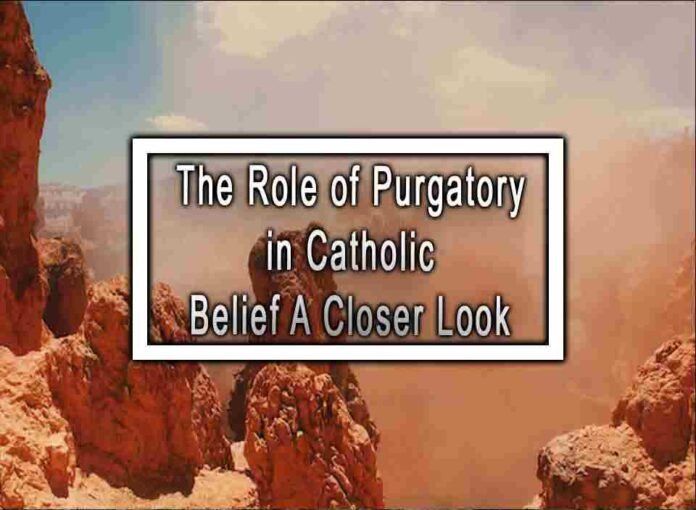Purgatory is a concept in Catholic theology that refers to a temporary state of purification for souls who have died in a state of grace but still need to be purified from the effects of their sins before entering the full presence of God in heaven. While not explicitly described in detail in the Bible, the idea of purgatory has been developed over centuries within Catholic tradition. Here’s a closer look at the role of purgatory in Catholic belief:
1. Purpose of Purgatory:
- According to Catholic teaching, God is infinitely just and merciful. While a person’s mortal sins can be forgiven through repentance and the sacrament of confession, the consequences and effects of sins, known as temporal punishment, still need to be dealt with. Purgatory serves as a place of purification where these remaining impurities are cleansed before a soul can enter heaven.
2. Duration of Purgatory:
- The duration of time a soul spends in purgatory is not defined. Catholics believe that the process of purification is determined by God’s mercy and the individual’s disposition at the time of death. Some may experience a brief purification, while others may undergo a more extended process.

3. Suffering and Cleansing:
- Souls in purgatory are believed to undergo a process of cleansing and purification. This process can involve suffering, which is understood as a form of spiritual growth and purification rather than punitive punishment.
4. Prayers and Intercession:
- Catholics believe that the living can assist the souls in purgatory through their prayers, sacrifices, and good deeds. This practice is rooted in the belief that the Church, both on earth and in heaven, is interconnected, and the communion of saints includes those in purgatory.
5. Indulgences:
- Indulgences are acts of piety, charity, or devotion that can reduce the amount of temporal punishment a soul in purgatory needs to undergo. While there has been some historical controversy surrounding indulgences, the Catholic Church continues to emphasize the importance of prayers, works of mercy, and acts of penance to benefit the souls in purgatory.
6. Scriptural Basis and Tradition:
- The concept of purgatory is not explicitly spelled out in the Bible. However, Catholics point to passages like 1 Corinthians 3:10-15 and 2 Maccabees 12:39-46 as indicative of a process of purification after death. The development of the doctrine of purgatory has been influenced by the writings of early Church fathers and the broader understanding of God’s mercy.
It’s important to note that the belief in purgatory is specific to Catholic theology and is not shared by all Christian denominations. The role and nature of purgatory continue to be a subject of theological reflection and discussion within the Catholic Church.












